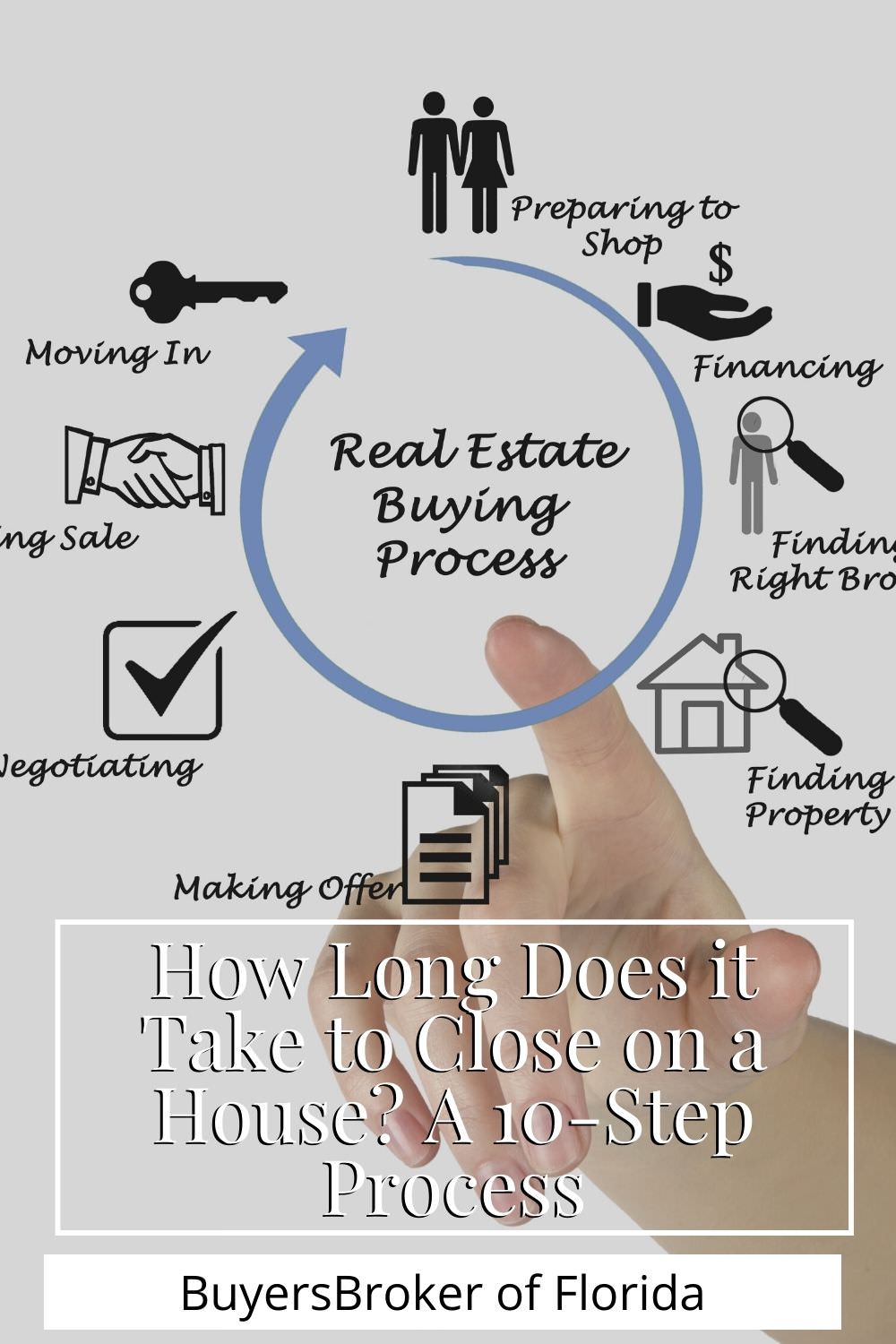How Long Does it Take to Close on a House? A 10-Step Process
Finally! After multiple offers, escalation clauses, sitting on pins and needles, and biting your fingernails, your offer has finally been accepted. This is a crazy market for buyers and sellers and if you’ve been struggling to land a house, you’re not alone. Everything matters, including the details from having enough earnest money deposit to the right down payment, timelines, motivated sellers, personal letters, and more… Oh my! But now that your offer is accepted, you’re probably wondering how long it’s going to take to close. Your offer will state a closing date but that can vary depending on whether you giving the seller time to move out if you’re closing on the signing day or thereafter but even though there’s a set date, you still might be wondering what the timeline looks like. Here’s a simple 10 step process from submitting your offer to the keys in hand to help you get to this process, understand what you are supposed to be doing during this time, and where everyone else stands.
#1. Plan ahead.
Closings typically take between 30 and 60 days and there’s a lot of different steps within that time for a smooth closing process. Many of these steps will actually occur at the same time so it’s important to keep a plan of where things are and what you are required to do for the closing to stay on track. This means that you’ll be able to move on to the next step quickly and check off that requirement. There will be a lot of communication between lenders, escrow company, title companies, and maybe even lawyers depending on how the offer is set up.
#2. Submit any additional documents.
Your lender may require additional documents once the offer is underway and this could be because you have a common name and they want to verify you are the right person purchasing the property, verify certain funds, or just about anything the lender might need along the way. The lender will drop the paperwork specific to the house and loan amount and you are pretty much committed to your lender from this point on. No need to restart the mortgage process. Simply let your lender do their job and answer any questions that might come up.
#3. Talk about title insurance and any other closing services you might need.
This process takes about a week or so and the lender will require title insurance that protects the lender against problems with the title of the property should there be any in the future. Your lender will typically require that you purchase this as part of the closing process. This may be built into the closing costs but it is something to ask about. Your real estate agent will typically recommend their preferred escrow agents, someone that helps facilitate and close the deal from an unbiased and mediation standpoint. You can always shop around and get bids from both escrow and title insurance companies though the practicality and expected benefit of this may vary depending of the size of your loan and the availability. Sometimes it’s just best to go with your agent’s recommendation. They’re working for you throughout this process.
Related: How to Write a Solid Offer Sellers Will Love
#4. Schedule the home inspection.
Right after the offer is accepted and earnest money is deposited, it’s time to schedule the inspection. This should be done within about a week or so after the offer is accepted. This will typically be paid out of pocket directly to the inspector either at the time of inspection or beforehand. The inspection will certainly show all of the issues and concerns of the property so it makes sense to schedule this early. Don’t wait until after the home appraisal because you want to give yourself plenty of time to negotiate concessions and the seller to correct anything. In these crazy seller’s markets, it may be beneficial to waive this inspection but be sure to talk with your agent as this is a risky move but may be beneficial in your case.
#5. Get the appraisal.
The appraisal will typically be within about 1 to 3 weeks after the offer is accepted. Once your lender generates the revised loan estimate for the specific property, they will typically order the appraisal. Appraisals can be the biggest timing factor in meeting desired closing dates. If the appraisal comes back lower-than-expected, only to talk with your agent and the lender about different options. You may be able to negotiate with the seller, but in crazy seller’s markets, it’s best to make up the difference if you can, however, this should be on a case-by-case basis.
#6. Shop for homeowners insurance.
This can be done right after the offer and up to about two weeks after. This is probably one of the easiest steps in the closing process. Your lender will want to make sure that the home and property is covered under a homeowners insurance policy. They will require you to provide proof of insurance or a declaration page before closing and you’re welcome to shop around and get as many discounts as you want.
#7. Take the final walk-through.
After all of these other contingencies and inspections are completed, you want to take a final walk-through before signing all the documents. This could be a week or so before final closing but at least after any negotiations and concessions have been made by the seller. Last-minute issues can arise so it’s good to check the home before you finalize anything and verify that the home is exactly the way it was when you decided to purchase it.
#8. Revise documents.
Any documents that will need revision need to happen before closing. By law, your closing agent must send you a final loan disclosure at least three business days before your final signing. Check with your escrow company to make sure they’re on track and you want to make sure your closing disclosure states all the final terms and costs of the mortgage loan that you’ve agreed to, the promissory note document contains the promise to repay the loan and you have a mortgage or deed of trust and how that document is going to be maintained, which varies by state and lender. Make sure you ask any questions to the escrow company before closing and are confident in the process.
#9. Review documents and final signing.
If everything has come together, your closing agent will call you for final signing. The sellers come in first separate from the buyers and sign all the documents which can take anywhere from 1 to 3 hours. The same will go for the buyers. Make sure you ask any questions and make sure you understand everything that your signing. You will typically need your identification and have your signing armor ready to go.
Once you signed everything, depending on your lender, you might get the keys within a few hours or a couple of days. Typically, the deed needs to be recorded with the county in which the property is located before the keys can be handed over. While it’s rare, there are issues that can arise between that final signing and closing so it’s best to wait for the keys when everything is closed and done.
#10. Save and file your documents.
Once you receive the keys to your home, feel free to move in at your leisure but keep all of your original documents in a safe place. You may need them when you sell the home later on. You may also need them if you have an insurance claim, title issue, or need to prove ownership in the future. This could be included with your purchase agreement, deed, promissory note, or deed of trust or mortgage.
The process will typically go smoothly but because there are so many different parties involved you never know what could happen. Everyone brings something different to the table so it’s important to work with a real estate agent that has the experience dealing with lots of different buyers, sellers, and service providers so that we can find solutions to problems should ever they arise.
For expert care in buying Orlando real estate, contact Buyers Broker of Florida – 407-539-1053 Info@OrlandoBuyersBroker.com
More Tips for Today’s Home Buyers


 Back Home
Back Home


Leave a Reply